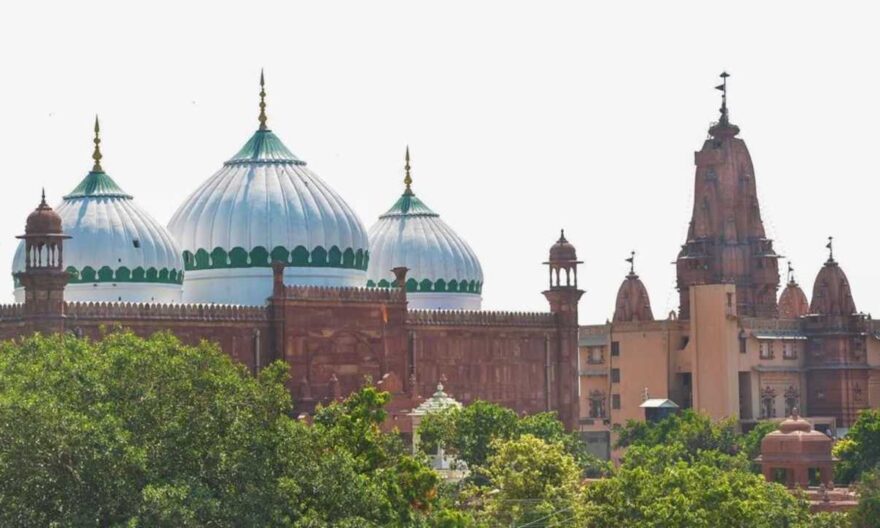
The Supreme Court on Tuesday said it will hear on October 3 the petition challenging the Allahabad High Court’s order to transfer all cases related to the Mathura Krishna Janambhoomi land dispute from the District Court Mathura to itself.
Advocate Vishnu Shankar Jain, representing Bhagwan Shri Krishna Virajman (Hindu side), request for an early hearing, noting that the matter has not been heard since the court’s July 21 order.
A bench comprising Justice Sanjay Kishan Kaul and Justice Sudhanshu Dhulia asked about the urgency of the matter.
Advocate Jain explained that various civil suits are pending, and due to the matter being before the Supreme Court, the Allahabad High Court has not constituted a bench for the case.
The Apex Court clarified that it has not passed a stay order on the High Court’s decision and agreed to hear the matter on October 3.
The Committee of Management Trust Shahi Masjid Idgah has filed an appeal in the Supreme Court, challenging the Allahabad High Court’s decision of May 26 to transfer all petitions related to the Mathura Krishna Janambhoomi land dispute from the Mathura District Court.
In the previous hearing, the Supreme Court asked the registrar of Allahabad High Court to give details of the suits which are being dealt with in the court relating to Mathura’s Krishna Janambhoomi land dispute.
The top court also noted that multiple suits had been filed in the matter.
The transfer application was granted by the high court despite a stay on the proceedings in the originating suit by a Coordinate Bench of the High Court of Judicature at Allahabad vide order August 3rd, 2022.
The impugned judgment also transfers other suits to the Allahabad High Court for which no transfer applications were filed.
Nine cases have been filed in the Mathura court concerning the Shri Krishna Janmabhoomi and Shahi Idgah Masjid. One of the suits, filed by Ranjana Agnihotri, seeks ownership of 13.37 acres of land at Shri Krishna Janmabhoomi and the removal of the Shahi Idgah mosque built on the premises. The suit contends that the mosque was constructed on the orders of the Mughal Emperor Aurangzeb in 1669-70, encroaching upon the land near Lord Krishna’s birthplace.




